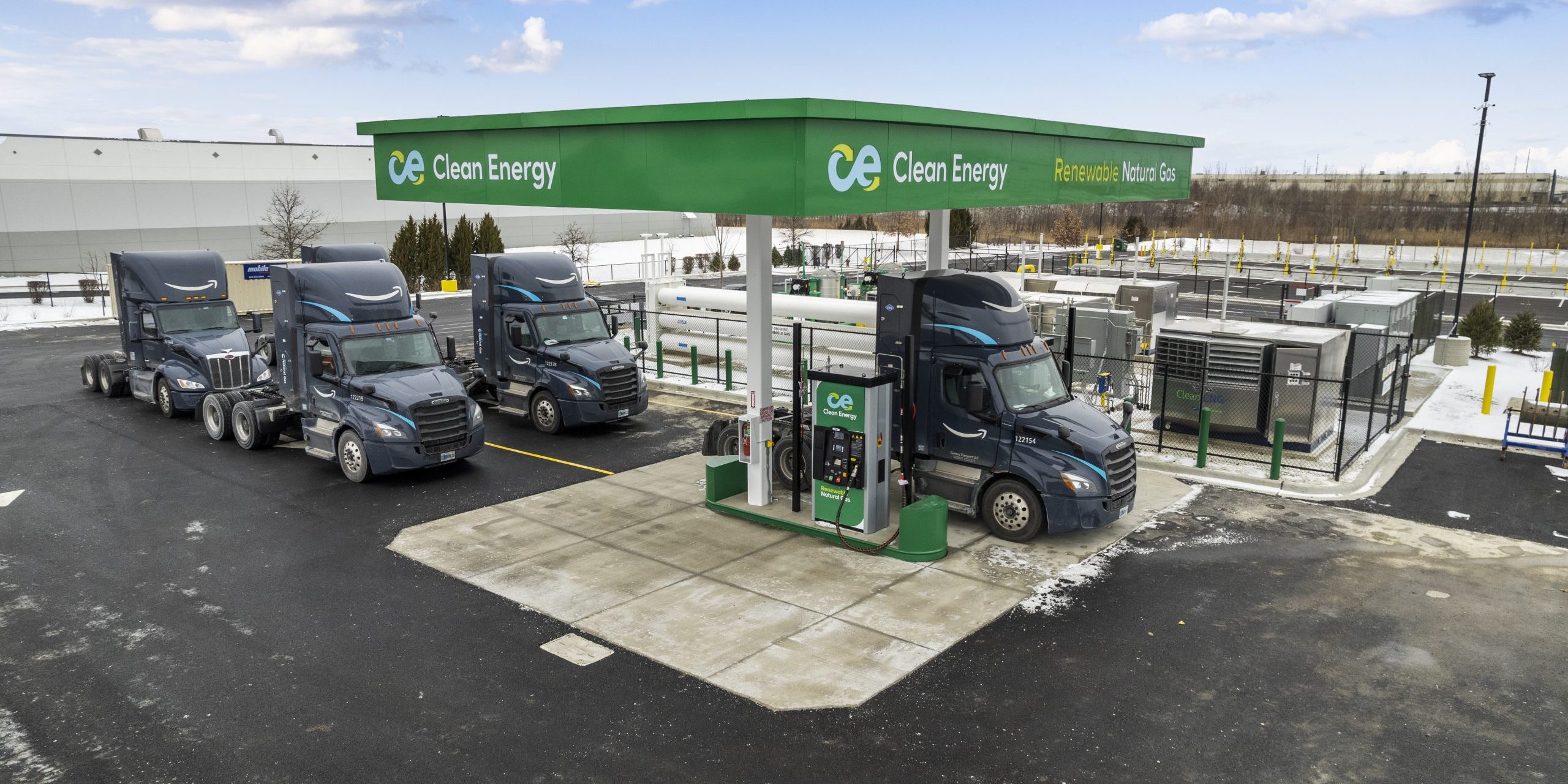Natural Gas Vehicles for America (NGVAmerica) and the Coalition for Renewable Natural Gas (RNG Coalition) – with partners California Natural Gas Vehicle Partnership and California Renewable Transportation Alliance –announced that California fleets fueled with bio-CNG achieved carbon-negativity in their transportation operations last calendar year for the third straight year.
Renewable natural gas accounted for 97% of all on-road fuel used in natural gas vehicles in California in 2022. According to data from the California Air Resources Board (CARB) the annual average carbon intensity score of bio-CNG in that mix was -98.98 gCO2e/MJ.
“When used as a transportation fuel, renewable natural gas displaces gasoline and diesel in applications that are difficult – if not virtually impossible – to electrify,” said Daniel Gage, President of NGVAmerica. “California fleets running on renewable natural gas achieve a carbon negative result today, making renewable natural gas better than zero.”
The use of biomethane as a transportation fuel in California grew 169% over the last five years. NGVAmerica and RNG Coalition report that in 2022 a total of 197.45 million gallons (DGE) of natural gas were used as motor fuel in the state. Of that, 190.46 million gallons (DGE) were from renewable sources.
“Renewable natural gas facilities address methane emissions from society’s inevitable waste streams, mitigate the environmental impacts of those emissions and convert captured methane into domestic, renewable, clean fuel and energy,” said Johannes Escudero, Founder & CEO of RNG Coalition. “These numbers highlight the critical role that renewable natural gas plays in decarbonizing the transportation sector today.”
Data from CARB’s Low Carbon Fuel Standard program confirms that bio-CNG remains the only net-zero carbon motor fuel in California’s alternative motor fuel portfolio, which includes ethanol, biodiesel, renewable diesel, bio-CNG, bio-LNG, electricity, alternative jet fuel, and hydrogen.
In addition to their negative greenhouse gas (GHG) emissions, ultra-low NOx medium- and heavy-duty biomethane-fueled trucks and buses perform at levels that are 95% below the federal NOx standard and 98% below the federal particulate matter (PM 2.5) standard. NGVs virtually eliminate criteria pollutant emissions that contribute to asthma, heart disease, and poor air quality.
Aggressive goals to decarbonized transportation over the next decade will only be achieved by prioritizing the transition of heavy-polluting, high mileage commercial fleets to cost-effective carbon-negative solutions like bio-CNG fueled trucks. These trucks are commercially available now, accruing and compounding significant clean air and carbon reductions today.
Unlike still-in-development ZEV options, bio-CNG trucks and buses have access to an established California public fueling infrastructure and a mature network of servicers and suppliers. These trucks are affordable and scalable, meeting range and operations requirements for any commercial medium- and heavy-duty application.
Details of the report – including graphics – can be accessed at: NGVAmerica’s website HERE and RNG Coalition’s website HERE.
Photo: Clean Energy
Source: NGVAmerica / RNG Coalition







